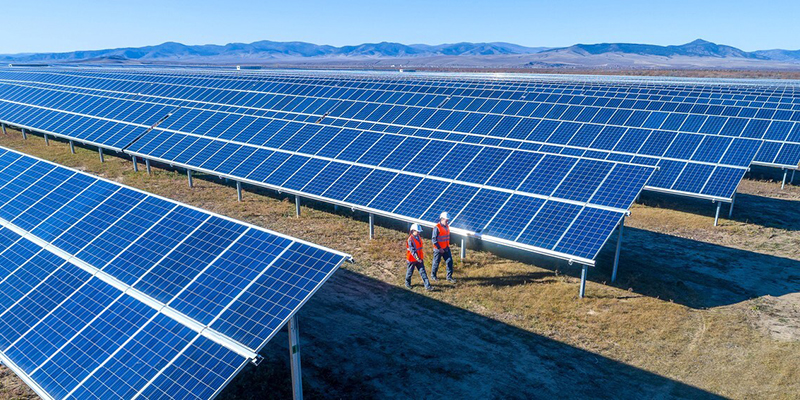The energy that can be used by being produced in the kind of electricity or thermal energy from the sun is called solar energy. The most common and familiar way to use solar energy is to capture the sun’s rays with a photovoltaic solar panel system that converts it into usable electricity. Solar energy is often used in thermal applications to heat confined spaces or liquids. Residential and commercial property owners can install solar hot water systems and design their buildings with passive solar heating to take full advantage of solar energy with solar technology. There are many solar energy systems developed to take advantage of solar energy.
Why Solar Energy?

Solar energy is one of the most important energy sources in the world. It is a fact that oil, natural gas, and coal reserves, which are known as fossil resources, will be depleted in time because they are scarce resources. When we consider this situation, we once again understand the importance of renewable energy sources. In addition, the intense use of fossil fuels in the world brings with it global environmental problems. Harmful gases such as carbon dioxide emitted into the atmosphere as a result of industrialization continue to cause global warming and climate change. Thanks to solar energy, we can be both more sensitive and more economical.
Advantages & Disadvantages Of Solar Energy

Sunlight is known as a renewable energy source that can be converted into usable energy with solar panels. There are two basic types of solar energy. One is Solar photovoltaic panels. These convert solar energy directly into a usable form of energy using a PV cell containing a semiconductor material. The other is concentrated solar energy. It concentrates the energy from sunlight into a heat sink that converts the energy from heat into mechanical energy and thus solar thermal electricity. In short, we can use solar energy not only to generate electricity but also to heat water. The production of electrical energy through the rays coming from the sun to the earth is called solar energy, also known as solar energy. Solar energy has both advantages and disadvantages.
Advantages
- Solar energy is a clean and renewable energy source.
- Solar energy can be generated free of charge when the solar panel is installed.
- Solar energy lasts forever.
- Solar energy does not harm the environment.
- Solar cells make absolutely no noise.
- The amount of free energy a solar panel can generate can be a high return on investment for the country.
- It reduces foreign dependency. You will not be affected by changes in electricity prices.
- The required energy can be found in every geography and every season.
Disadvantages
- Solar panels can be expensive to install.
- Electricity production depends entirely on a country’s exposure to sunlight.
- Solar energy plants can be so valuable to build.
- Solar energy only provides benefits during the day.
- The efficiency of solar panels decreases on cloudy and rainy days.
Do Solar Panels Work At Night?

Solar power plants installed on the roofs of the houses and used by the residents do not benefit at night after the sunlight has disappeared. The biggest and main problem in solar energy systems is the absence of sunshine all day long and therefore not getting efficiency. Thanks to our developing technology, solar energy systems have also been developed. It is possible to benefit from sunlight all day in solar energy systems. The only problem is that these systems are costly in the beginning.
As Figabara, we aim to provide you with the best service. Follow us to learn more.
Check this out too: https://figabara.com/en/what-is-renewable-energy/

